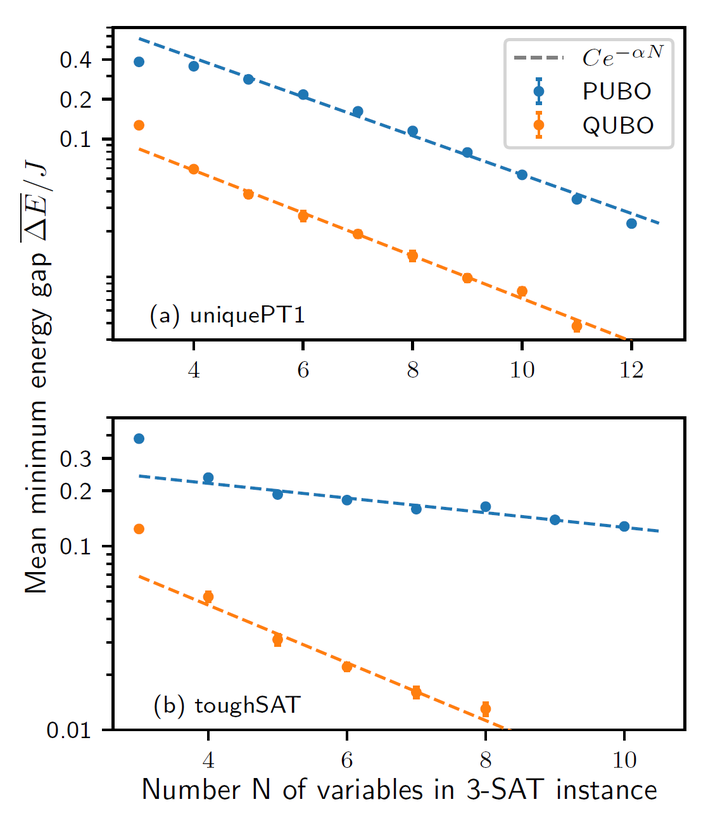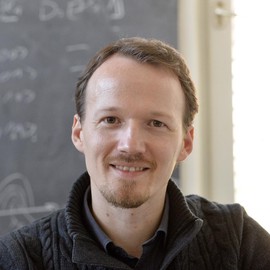Boosting quantum annealing performance through direct polynomial unconstrained binary optimization

Abstract
Quantum annealing aims at solving optimization problems of practical relevance using quantum computing hardware. Problems of interest are typically formulated in terms of quadratic unconstrained binary optimization (QUBO) Hamiltonians. However, many optimization problems are much more naturally formulated in terms of polynomial unconstrained binary optimization (PUBO) functions of higher order. As we show with various problem examples, leveraging the PUBO formulation can bring considerable savings in terms of required number of qubits. Moreover, in numerical benchmarks for the paradigmatic 3-SAT problem, we find scenarios where the scaling of the minimal gap during the optimization sweep differs significantly, suggesting the possibility of an exponentially faster annealing time when using the PUBO as compared to the QUBO formulation. This advantage persists even when considering the overhead in implementing the higher-order interactions necessary for PUBO cost Hamiltonians. As an interesting side effect, the analysis on minimum energy gaps of different 3-SAT instance generators reveals different degrees of hardness, which will be of interest also for classical benchmark calculations. Our findings show a promising path to improving the resource efficiency and sweeping speed of quantum annealing, important prerequisites when aiming at solving larger optimization problems with relevance to industry.
Published 22 April 2025


